At the J Street meeting
By Lori Lowenthal MarcusThe Washington conference of the new organization "J Street" took place on October 25-28. It was a fascinating but scary cultural experience.
For three days I watched hundreds of intensely pious people sitting under an awning that reads "pro-Israel, pro-peace." But by far the dearest hopes of the folks on J Street were for the well-being, and especially the sovereignty, of a people whose leadership has stated repeatedly that its goal is to destroy Israel and murder Jews.
I saw two overarching themes defining this conference: one, Iran is not a problem we care about; and two, a Palestinian State must be created now (What do we want? A Palestinian State! When do we want it? Now!), and both the Israelis and the Palestinians are so dysfunctional that only the Obama administration can achieve it. Palestine Now! was the battle cry of the conference, but the utter lack of concern regarding the Iranian threat is the real proof that J Street is not at its essence pro-Israel.
First, a fact: although it is difficult to get Israelis to agree on anything, there is one issue on which there is near unanimity among them: Iran presents an imminent and devastating threat to the existence of the State of Israel. It is the single biggest security concern amongst nearly all Israelis of every political and religious stream.
The J-Conference organizers devoted only one of the thirty-two sessions to the issue of Iran, and that session focused solely on the success of diplomacy. The speakers and the moderator of that session were aggressively anti-anything-other-than-diplomacy, so there was nothing for audience members to consider as a legitimate alternative.
But most disturbing was the nearly complete silence about Iran other than by Israeli speakers and a few American politicians who, presumably, assumed a "pro-Israel" gathering would want reassurances on the topic. Those politicians were wrong.
In other words, the overwhelming majority of those who came to the J Street conference understood the code words "pro-Israel" to have no bearing on what Israelis might find most important to their security. The threat of Iran to Israel simply plays no role in the narrative that motivated so many hundreds of people to identify with and join the J Street team.
Think of it: an oil-rich nation near Israel pursues nuclear power, refuses to eschew nuclear weapons, denies the Holocaust from the podium of the United Nations, and threatens to wipe Israel off the map -- and the enormous audience the J Street leadership claims as its own, an organization calling itself "pro-Israel, pro-peace," doesn't really give a hoot.
This was too hard even for Obama political appointees to grasp. U.S. National Security Advisor General James Jones, in his keynote address attended by nearly all conference participants, did mention Iran as a threat to Israel. Jones assured the sandwiched-in crowd that the United States stands with Israel in facing Iran.
But there was little audience response. A far different reaction -- rapturous applause -- met nearly every mention of alleviating Palestinian suffering and the "Palestine Now!" mantra.
I heard one or two mentions of Iran by non-Israeli "experts." Each time it was discussed in the context of that country's hostility to Israel being "neutralized" by the immediate creation of a Palestinian State.
The link between Iran and the posthaste demand for a Palestinian State, the lectures went, was that taking that bold step would not only quell unrest amongst Palestinians and Israelis, but it would also stabilize the entire Middle East and end global terrorism.
A straight-up articulation of this Palestine Now! equals Global Peace theme was by Salam al-Marayati, a source of acrimonious controversy in advance of the conference. (Al-Marayati had immediately pointed to Israel as the likely source of the attacks on the World Trade Center.) At J Street, Al-Marayati informed his audience that the absence of a Palestinian State is a major source of the current violence in Pakistan, and that it is the central issue "critical to the hearts and minds" of all 1.5 billion Muslims worldwide.
But it was not only controversy-generating Muslims who were intoxicated by the desire for a Palestinian State. Former Israeli Minister of Foreign Affairs Shlomo Ben-Ami explained that it is only President Obama who can achieve this because "there is no chance whatever to reach settlement by ourselves; it is entirely out of the question." This is because both Israel and the Palestinians have such "dysfunctional political systems."
Several other Israelis who were once members of Israeli governments, or who are aligned with former (but not current) leaders pushed the presto Palestine line. Virtually every one of them was heavily invested in the Oslo Accords and the Geneva Initiatives, both peace plans that literally blew up. Of course, to the extent the failures of these "peace" efforts were acknowledged at all, their failures were attributed to Israel's not having capitulated far and fast enough. Like the food in the Jewish resort described long ago: it tasted terrible and the portions were too small.
The desperation driving some of the rhetoric worked itself out in the form of veiled threats. Ron Pundak, whose ink is on both the Oslo Accords and the Geneva Initiative, and who is currently the Director General of the Peres Center for Peace, was practically frenzied.
Pundak went beyond merely promoting Palestine Now! as a sure way to soothe the Iranians and bring regional peace -- he said "the only real answer to the Iranian threat is peace with the Palestinians." Pundak claimed that if such a state is not created immediately, Arabs will live in ghettos in situations even worse, possibly, than those of blacks in South Africa during the eighties and nineties.
Many anecdotes have been reported about the conference, but I believe these two themes offer an important insight. How does J Street's claim of "pro-Israel" square with being deaf to the threat Iran poses to Israel's security, and what does it mean for a group to be so utterly invested in Palestine Now! that the participation of the parties and even the peace process itself is jettisoned? Could it be that these themes are complementary? The immediate creation of a Palestinian State will mean the end of Israel, and therefore Iran will not pose a problem.
Lori Lowenthal Marcus is the co-founder of Z STREET ziostreet.wordpress.com
For three days I watched hundreds of intensely pious people sitting under an awning that reads "pro-Israel, pro-peace." But by far the dearest hopes of the folks on J Street were for the well-being, and especially the sovereignty, of a people whose leadership has stated repeatedly that its goal is to destroy Israel and murder Jews.
I saw two overarching themes defining this conference: one, Iran is not a problem we care about; and two, a Palestinian State must be created now (What do we want? A Palestinian State! When do we want it? Now!), and both the Israelis and the Palestinians are so dysfunctional that only the Obama administration can achieve it. Palestine Now! was the battle cry of the conference, but the utter lack of concern regarding the Iranian threat is the real proof that J Street is not at its essence pro-Israel.
First, a fact: although it is difficult to get Israelis to agree on anything, there is one issue on which there is near unanimity among them: Iran presents an imminent and devastating threat to the existence of the State of Israel. It is the single biggest security concern amongst nearly all Israelis of every political and religious stream.
The J-Conference organizers devoted only one of the thirty-two sessions to the issue of Iran, and that session focused solely on the success of diplomacy. The speakers and the moderator of that session were aggressively anti-anything-other-than-diplomacy, so there was nothing for audience members to consider as a legitimate alternative.
But most disturbing was the nearly complete silence about Iran other than by Israeli speakers and a few American politicians who, presumably, assumed a "pro-Israel" gathering would want reassurances on the topic. Those politicians were wrong.
In other words, the overwhelming majority of those who came to the J Street conference understood the code words "pro-Israel" to have no bearing on what Israelis might find most important to their security. The threat of Iran to Israel simply plays no role in the narrative that motivated so many hundreds of people to identify with and join the J Street team.
Think of it: an oil-rich nation near Israel pursues nuclear power, refuses to eschew nuclear weapons, denies the Holocaust from the podium of the United Nations, and threatens to wipe Israel off the map -- and the enormous audience the J Street leadership claims as its own, an organization calling itself "pro-Israel, pro-peace," doesn't really give a hoot.
This was too hard even for Obama political appointees to grasp. U.S. National Security Advisor General James Jones, in his keynote address attended by nearly all conference participants, did mention Iran as a threat to Israel. Jones assured the sandwiched-in crowd that the United States stands with Israel in facing Iran.
But there was little audience response. A far different reaction -- rapturous applause -- met nearly every mention of alleviating Palestinian suffering and the "Palestine Now!" mantra.
I heard one or two mentions of Iran by non-Israeli "experts." Each time it was discussed in the context of that country's hostility to Israel being "neutralized" by the immediate creation of a Palestinian State.
The link between Iran and the posthaste demand for a Palestinian State, the lectures went, was that taking that bold step would not only quell unrest amongst Palestinians and Israelis, but it would also stabilize the entire Middle East and end global terrorism.
A straight-up articulation of this Palestine Now! equals Global Peace theme was by Salam al-Marayati, a source of acrimonious controversy in advance of the conference. (Al-Marayati had immediately pointed to Israel as the likely source of the attacks on the World Trade Center.) At J Street, Al-Marayati informed his audience that the absence of a Palestinian State is a major source of the current violence in Pakistan, and that it is the central issue "critical to the hearts and minds" of all 1.5 billion Muslims worldwide.
But it was not only controversy-generating Muslims who were intoxicated by the desire for a Palestinian State. Former Israeli Minister of Foreign Affairs Shlomo Ben-Ami explained that it is only President Obama who can achieve this because "there is no chance whatever to reach settlement by ourselves; it is entirely out of the question." This is because both Israel and the Palestinians have such "dysfunctional political systems."
Several other Israelis who were once members of Israeli governments, or who are aligned with former (but not current) leaders pushed the presto Palestine line. Virtually every one of them was heavily invested in the Oslo Accords and the Geneva Initiatives, both peace plans that literally blew up. Of course, to the extent the failures of these "peace" efforts were acknowledged at all, their failures were attributed to Israel's not having capitulated far and fast enough. Like the food in the Jewish resort described long ago: it tasted terrible and the portions were too small.
The desperation driving some of the rhetoric worked itself out in the form of veiled threats. Ron Pundak, whose ink is on both the Oslo Accords and the Geneva Initiative, and who is currently the Director General of the Peres Center for Peace, was practically frenzied.
Pundak went beyond merely promoting Palestine Now! as a sure way to soothe the Iranians and bring regional peace -- he said "the only real answer to the Iranian threat is peace with the Palestinians." Pundak claimed that if such a state is not created immediately, Arabs will live in ghettos in situations even worse, possibly, than those of blacks in South Africa during the eighties and nineties.
Many anecdotes have been reported about the conference, but I believe these two themes offer an important insight. How does J Street's claim of "pro-Israel" square with being deaf to the threat Iran poses to Israel's security, and what does it mean for a group to be so utterly invested in Palestine Now! that the participation of the parties and even the peace process itself is jettisoned? Could it be that these themes are complementary? The immediate creation of a Palestinian State will mean the end of Israel, and therefore Iran will not pose a problem.
Lori Lowenthal Marcus is the co-founder of Z STREET ziostreet.wordpress.com
Page Printed from: http://www.americanthinker.com/2009/11/at_the_j_street_meeting.html at n November 05, 2009 - 07:06:50 AM EST
--
Lori Lowenthal Marcus
Z STREET co-founder
http://ziostreet.wordpress.com
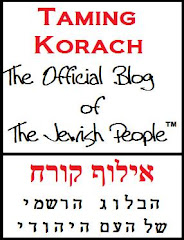






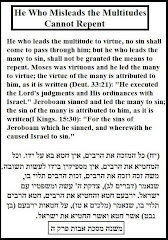
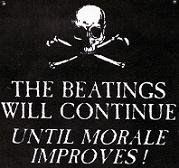

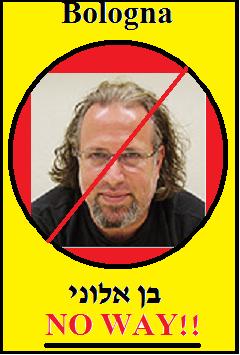

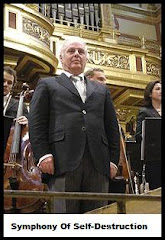
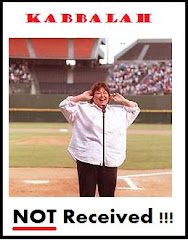
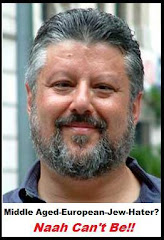

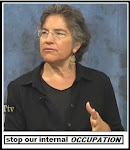
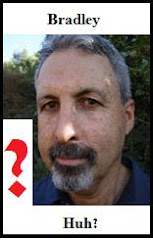


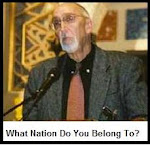





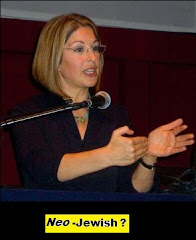


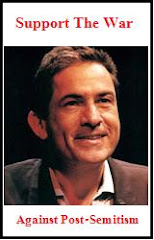










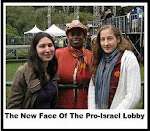
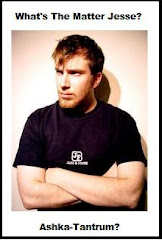





No comments:
Post a Comment